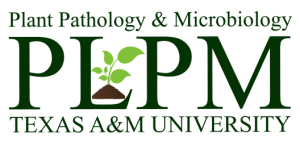March 2022

Plan Health is Health
I’m going to break the norm of this blog: no album title to correlate. That is (1) because I couldn’t think of one to match this topic well, and (2) because I changed ideas at the very last minute. The other blog was just a dredge with a lot of introspection that I just frankly do not have time for at this present week. Spring Break is going to be the week of clarity for me, as the classes back off for one week for me to reorganize both classwork and lab work, and I can be right on track for introspection, but for now, I’m going to keep it light (we all need that anyways).
As a microbiologist, came to Texas A&M Plant Pathology program specifically to work with bacteria. I lucked out that I was able to join an amazing lab and work on microbial interactions. One thing that commonly popped up in my undergrad that we don’t have in our little nook of plant pathology was the general ‘who cares’ about microbes that don’t affect us directly. Most microbiologists I know go on to further schooling in a human centric way: doctors, nurses, dentists, even my chiropractor was a microbiologist. Many getting their masters or doctorate went on to programs that focused on human diseases.
I’m not saying any of those pursuits are wrong or lesser by any means. I found my classes on immunology and pathogenic bacteriology to be very interesting, almost as interesting as my bacterial physiology course. Truthfully, the main reason why I am with plants and not with the more common animal side of things was because I have pet rodents, and the reality of our profession hit me as one of my friends from Virginia Tech was complaining about Thanksgiving Break coming up and how she had to go through eighty guinea pigs, to which, for a millisecond, I was overjoyed with the thought of being in a room with eighty guinea pigs, when reality came crashing down. I happened to be in a lab that worked with environmental microbes, ones that catalyze freezing of water at higher temperatures, so I had not quite come to grips that being a medical microbiologist in research meant you were most likely going to be infecting and euthanizing some animals I own as pets. I could get over it if I really had to, but plants get sick too. Good for me, bad for everyone else.
See, microbes that affect plants affect many more people in one go than any microbe in a person could. I got an infection, it affected me until I got antibiotics and it went away. One and done. You get an infected field? Farmers lose their crops, costs go up for everyone, all in all, not a great time. In terrible scenarios (ie. Potato Famine), people starve and move to new countries, changing the sociopolitical landscape of the time because of crop diseases. Besides the plants that feed us, there’s plants that clothe us (cotton, the victim of my particular microbial pathogen of interest), and there’s plants that make the world look nicer (you won’t buy an ugly ornamental, and trees being cut down from properties lower value). Point is, if there’s a plant, there’s an importance to someone somewhere somehow, and there’s more than one way it gets sick, which is why the world needs plant pathologists just as much as it needs those pathologists focused on humans and animals.
Personally, I am not too tied to plants specifically, like I’ve said before, bacteria are my thing, but even in my microscopic viewpoint I can gather the importance of keeping things alive for us to then later be able to use in some aspect. Pathogens harming plants are secondarily harming us. We go to an agriculture school, there’s a reason AgriLife is gigantic: it’s important.
Can I say I know for sure that I’m going to stick with plants when I’m done my work here? No. But I can say I’ll gain experience that can be utilized elsewhere while gathering a broader understanding of what exactly constitutes ‘health’? Absolutely. Plant health is health. Dead plants lead to dead people, and I’m speaking as one who doesn’t consider myself to be an environmentalist.
There’s more bacterial DNA in you than your own DNA. There’re more bacteria in a gram of soil than there are humans on earth. Our science advances exponentially every time we discover something new about bacteria and someone smart enough puts it to work for us. They are a good, most microbes are good, but when you get the right environment for a microbe that also weakens the host, disease occurs. When disease occurs in ourselves, we try to fix it, so why would we not do the same for our plants?
